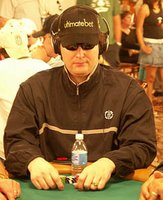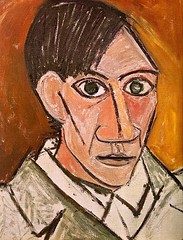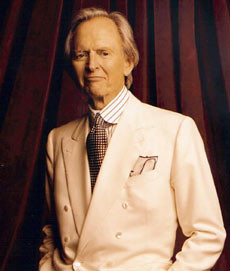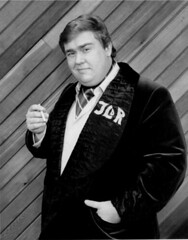 Now that the long holiday weekend is over, I’ve actually cleaned the apartment for Wife’s return after an unexpected trip, why not return to Blogworld, as I have been skittering around its edges like a scared kitten of late? Why the hell not?
Now that the long holiday weekend is over, I’ve actually cleaned the apartment for Wife’s return after an unexpected trip, why not return to Blogworld, as I have been skittering around its edges like a scared kitten of late? Why the hell not?
But it’s not my weekend boredom that I want to waste your time with. Instead, I’ll waste your time relating to a dinner conversation of a week ago, the subject of which made me extremely uncomfortable. That subject would be me.
Like most writers—the only ones you can trust, rather—I despise it when the conversation is myself, or if I have talk about myself. What was at issue was my behavior during poker games, mind you. One of my friends noted that I have the disconcerting habit of making others uncomfortable with my poker play—intimidation, dirty looks, trash talking.
I was so taken aback by these accusations that I had trouble swallowing my beer. But my friend was right. I can act this way, but only to people who are my friends, who know that I’m joking, and are in on the joke. However, those unfortunates at the table but don’t know me are less than charmed.
“And, you can be intimidating,” my other friend piped in, though he had been sitting in my defense until them.
The ultimate insult was being compared to Phil Hellmuth, the "bad boy" of poker and winner of the title of "Poker's Biggest Asshole."
I tried making excuses. I tried showing them I was certainly not the biggest jerkoff on the planet, maybe just third- or fourth-biggest. I told of others who were acting immature but wasn’t an act; that there were people DEAD SERIOUS ABOUT POKER; that my behavior, really, was directed towards people who know better.
Unlike Picasso, no self portraits here
But like I said above, my friend was right. Meet a stranger who is acting like an asshole, and you think, “That guy’s an asshole,” and the notion that this fellow is engaging in a “shtick” doesn't come to mind.
I’m not here to make excuses for my behavior, but rather to say that others view us based on a set of parameters given our behaviors. As writers, it is our business to observe behavior, to turn what people say and do into the written word.
There is a Great Debate among Great Writers about how much of fiction writing should emanate from the imagination and observation, and how much from research and reportage. OK, it’s just between Everybody Who’s Anybody in Writing Vs. Tom Wolfe.
The man who gave us The Electric Kool-Aid Acid Test and The Right Stuff—books whose greatness few question—also gave us The Bonfire of the Vanities, A Man in Full, and I Am Charlotte Simmons, a trio of novels that are about as respected in highbrow literary circles as Moe, Larry, and Curly.
Which is an apt comparison, as Wolfe compared John Updike, Normal Mailer, and John Irving to those three stooges by name, saying how their literary techniques were being pushed aside in favor of an approach that entailed immense amounts of research and reporting before a single word of fiction is committed to paper.
The life I would not expect Tom Wolfe to fictionalize is Tom Wolfe’s. And this is where I must be one of the more atypical writers out there. I try not to base fiction on my life.
Sure, the details leak out, it’s inevitable. My novel is set in the city of my birth, the protagonist is grew up about the same time I did, his family is Jewish. But that’s about that.
Philip Roth, on the other hand, has written more about Philip Roth than critics have written about Philip Roth. His Zuckerman books are a largely based on his own life; characters in other novels, like Operation Shylock or The Plot Against America” feature a protagonist named “Philip Roth.”
The assumption is that you base a novel on one's own experiences, if not one's life. One of the first things my agent asked was, "How much do you have in common with the narrator?"
It only gets worse, of course, when dealing with non-writers. As many viewers will assume that the person playing Zack on a soap opera is a murderous, evil man behind his happy veneer, many readers conflate writer with narrator: they assume you are no different than a protagonist of your own making. You're a serial killer, junkie, compulsive butt-picker, and all-around jerk.
His way or the highway
This gets back to my bad behavior while playing cards: as observers, we are constantly monitoring others, not ourselves, and I shudder to think that one of the people I’ve played poker with decides to write about it, be it an essay or a story featuring a fictionalized version of me.
But if I were to base a character on myself, I would make this person was handsome, brilliant, smart, giving, sweet, five inches taller, higher cheekbones, and capable of typing 90 words per minute. If one of my poker non-buddies were to write it, I would be snide, churlish, and totally impressed with myself.
That, I’ve come to realize, is one reason I write a blog. I’m needy for the praise of viewers just like you, but I put myself online because I cannot fathom putting myself into a work of fiction.
After all, why should I write that much more about someone I hate?
Wednesday, July 05, 2006
Poker Faced
Subscribe to:
Comment Feed (RSS)


|